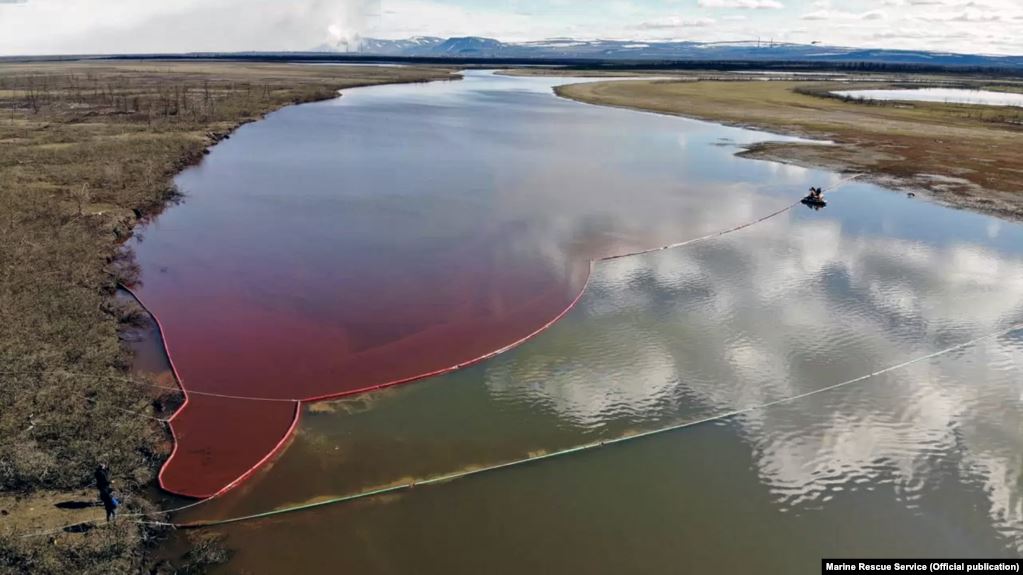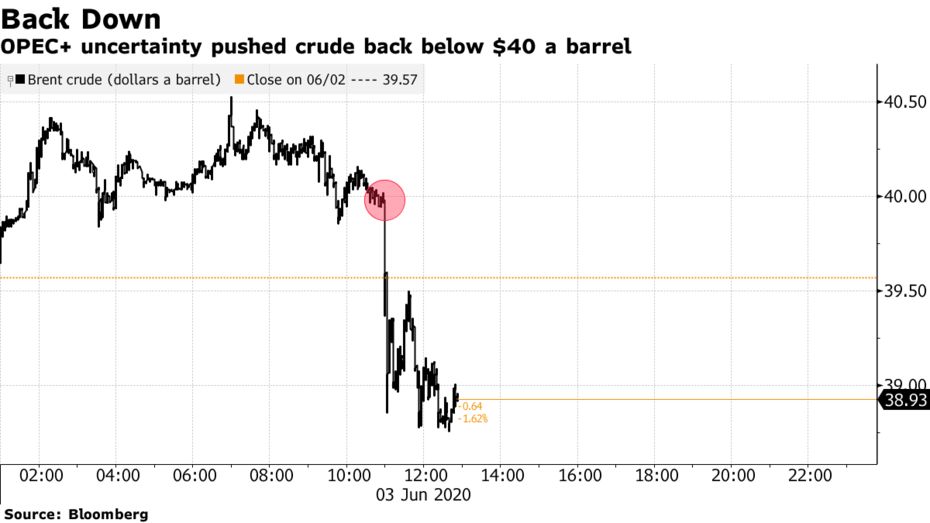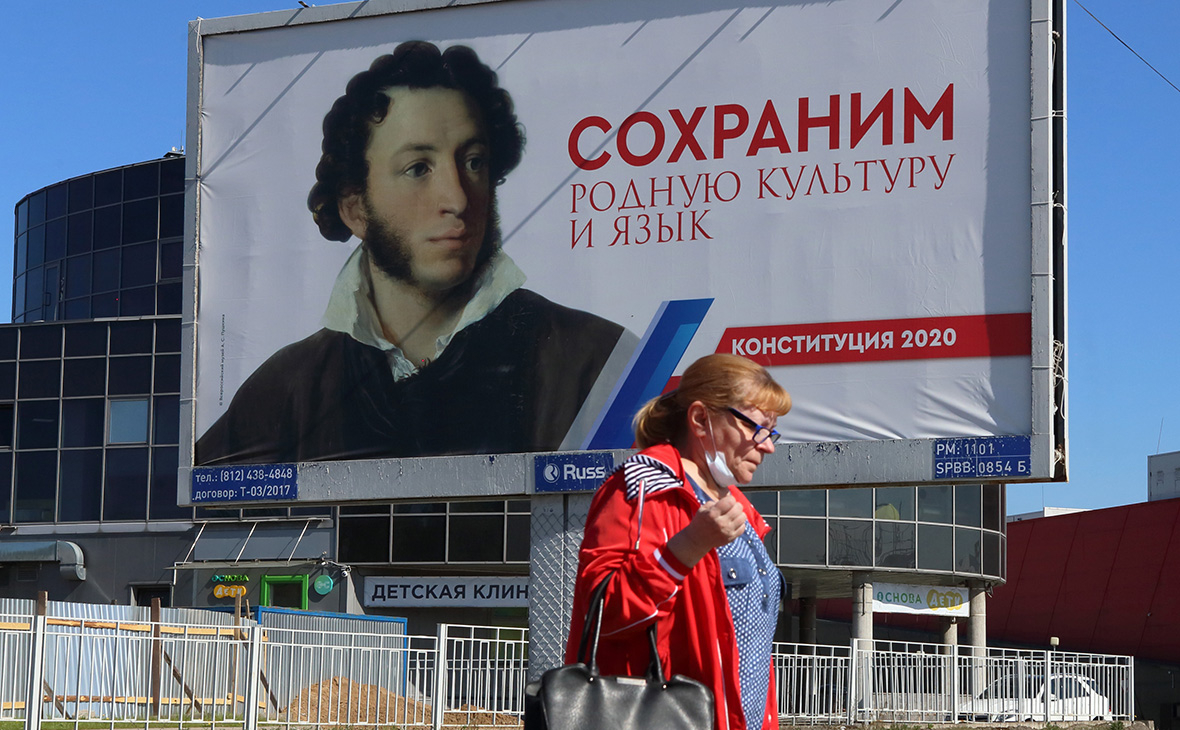RA’s Daily Russia News Blast – June 3, 2020

Today in Russia: How Russian TV is covering US protests; Oil prides slide over fears of OPEC+ deal collapse; Moscow Exchange to extend trading hours to midnight; Norilsk fuel spill leads to declaration of emergency; Trump wants nuclear pact with Russia; Government sees no coronavirus risk in holding constitutional referendum; Ban on any campaigns opposing constitutional amendment; “There’s nothing the Kremlin hasn’t tried” to ensure referendum victory; Trump: “common sense” to invite Putin to G7; Has the United States abandoned arms control?; Polish regulator threatens to sue Gazprom
The Moscow Times looked at how Russian television is covering ongoing protests in the US. While Russian newspaper coverage has been “relatively low-key and factual,” television reporting has shown to be quite a contrast. One station’s commentator said, “The feeling of Schadenfreude is absolutely on point: Let American imperialism rot and collapse.“
Oil prices slipped just hours after they passed $40 after fears that OPEC+ may not reach an agreement to maintain cuts past June because of concerns held by China and Russia over some members “cheating” on their obligations. Bloomberg highlighted Nigeria and Iraq as particularly egregious in failing to meet their production cut obligations.

The Moscow stock exchange will extend trading hours to midnight, bucking a trend in Europe to shorten trading hours. The Russian exchange has seen a burst of retail investors since last year, and the extension of trading hours is an effort to capitalize on this. Some analysts fret about low liquidity in later trading hours and the risk of market manipulation as a result, but Boris Blokhin, stock department director, declined to answer a question about the risks of manipulation.
A diesel spill in the arctic city of Norilsk in Krasnoyarsk Krai may trigger an environmental disaster. 20,000 liters of diesel fuel spilled from a thermal power plant on May 29. Booms have been effectively deployed to waterways around the city, but experts have noted that the most dangerous components of diesel fuel are aromatic compounds that cannot be contained with booms. President Vladimir Putin declared a federal emergency today [in Russian], but not before Putin berated the governor of Krasnoyarsk Krai for not informing him earlier, and asked why federal officials only learned of the spill “through social networks” [in Russian]. Kommersant looked into the exact timeline of the spill and who was informed and when – seemingly contradicting President Putin’s claims.
The government does not see any coronavirus risk to holding the constitutional referendum on July 1, Kommersant wrote. Kremlin spokesman Dmitry Peskov said, “The situation with COVID-19 is improving, there will no longer be such a danger [getting infected with coronavirus].”
Russia has banned any campaign against the constitutional referendum on July 1 which will effectively allow President Putin to rule for life. An official from the Central Election Committee claimed [in Russian], “Information on the holding of voting on the amendments is entrusted to the election commissions and to the media.” Moscow Times reported that Opponents of the amendments have asked the Central Election Commission (CEC) to allocate media time and space for their campaign, RBC reported. They argue that they are being deprived of a chance to express their opinions amid an ongoing campaign urging Russians to vote for the reforms.“
Despite the CEC’s claims that campaigning was not allowed, Meduza reported that numerous campaigns and propaganda videos have been released on television, and billboards and other media supporting the referendum have been put up which are “not formally part of the Kremlin’s campaign,” raising questions about why such media is permitted while anti-referendum campaigning is not.

Meduza quoted an analyst saying that “There’s nothing the Kremlin hasn’t tried to float in these last two months” to ensure a favorable result in the referendum. This includes “staggering voting over a seven-day period, allowing voting from home, and introducing online voting for residents of Moscow and St. Petersburg” in addition to propaganda efforts.
US President Donald Trump said that it is “common sense” that Russia be invited to the September G7 meeting. “It’s not a question of what he’s done, it’s a question of common sense…We have a G-7, he’s not there. Half of the meeting is devoted to Russia and he’s not there.” Trump did not address the discrepancy between insisting Russia attend, and the planned absence of China despite a White House spokeswoman stating that issues relating to China will be high on the agenda.
Joshua Rovner asked if the US has “abandoned” arms control in a piece for War on The Rocks. Rovner writes that the Trump Administrations’s pull-out from Open Skies, the possible lapsing of the START treaty, among other actions may not be so out of character for the US:
Seen in this light, Trump’s actions are not such a radical break from the past. As with other issues, his outlandish rhetoric obscures areas of policy continuity. U.S. presidents since Dwight Eisenhower have publicly aspired to disarmament while simultaneously invested in a nuclear posture built around increasingly accurate and lethal weapons. The United States has consistently sought to stay ahead of all other nuclear-armed countries, friends and rivals alike, and has pushed for arms control treaties that lock in U.S. advantages. Ike’s original Open Skies proposal, after all, promised an intelligence windfall at a time when Soviet security depended on keeping the Americans in the dark about its relative weakness. And if the Kremlin rejected a deal that promised transparency and peace, then Washington could claim a propaganda victory. In this and other cases, U.S. leaders favored arms control when they believed they could use it to achieve an American advantage. Trump’s talk is unsubtle, but his commitment to maintaining nuclear superiority is not unusual.
A Polish regulator has threatened to sue Gazprom for not cooperating in an anti-monopoly probe. Meduza wrote, “Poland’s Office of Competition and Consumer Protection (UOKik) is threatening to sue Russian energy giant “Gazprom” for 50 million euros (approximately $56 million), for its refusal to share materials with an anti-monopoly investigation connected to the construction of the Nord Stream 2 pipeline.“
PHOTO: Cleanup operations in the arctic city of Norilsk after 20,000 liters of diesel fuel was leaked from a thermal power plant into local waterways (Marine Rescue Service).











